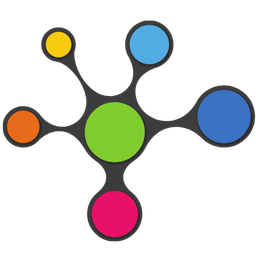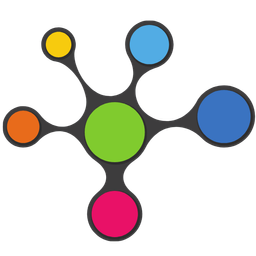Grammarly just bought Superhuman, the email app that promises to make you respond faster and feel superior about your inbox management. The grammar-checking company paid an undisclosed sum for the startup, which was worth $825 million in 2021 and pulls in about $35 million annually.
This isn't just another tech acquisition. Grammarly wants to build an AI productivity empire, and email sits at the center of that plan. The company recently raised $1 billion from General Catalyst, giving it enough cash to go shopping for the right pieces.
Superhuman brings more than just another product to the table. The email app has cultivated a devoted following among professionals who pay premium prices for speed and efficiency. Users send 72% more emails per hour after switching to Superhuman, according to the company. That's either impressive productivity or a concerning sign about email addiction.
The Email Obsession Makes Sense
Email dominates how people work. Professionals spend three hours daily swimming through their inboxes, making it the most-used work application. Grammarly already helps users polish 50 million emails weekly across Gmail, Outlook, and other platforms.
Rahul Vohra, Superhuman's CEO, joins Grammarly along with over 100 employees. The Superhuman brand and product continue unchanged, at least for now. Vohra says the deal gives his team access to "significantly greater resources" to invest in AI and expand into calendars, tasks, and collaboration tools.
The strategic logic is straightforward. Grammarly has 40 million daily users and generates over $700 million annually from grammar checking and writing assistance. Email represents their biggest use case. Owning the email experience gives them direct access to where people actually work.
Building the AI Agent Army
Grammarly CEO Shishir Mehrotra has bigger plans than just fixing typos. He envisions a future where multiple AI agents work together across different applications. One agent handles grammar and tone. Another manages sales facts. A third provides customer context. A fourth suggests marketing angles.
This multi-agent approach requires coordination, and email serves as the perfect command center. People already live in their inboxes. Adding intelligent agents that can read, analyze, and respond makes more sense than forcing users to learn new platforms.
The company previously acquired Coda, which provides document collaboration tools. Combined with Superhuman's email expertise, Grammarly now controls key communication channels where AI agents can actually be useful.
The Competition Heats Up
Grammarly enters a crowded field of AI productivity tools. Microsoft embeds Copilot across Office. Google adds AI features to Workspace. Salesforce builds agents for customer management. Startups launch weekly promising to automate your work life.
The difference lies in distribution. Most AI tools require users to change their behavior or adopt new platforms. Grammarly's "AI superhighway" works across 500,000 applications and websites, meeting people where they already work.
Superhuman adds another advantage: a premium user base willing to pay for productivity gains. The email app built its reputation on exclusivity and performance. Users had to join waiting lists and pay monthly fees for faster email processing.
That audience provides the perfect testing ground for advanced AI features. Power users who already pay premium prices will likely embrace AI agents that save even more time.
What Changes for Users
Superhuman users shouldn't expect immediate changes. The product, team, and brand continue operating independently. But longer-term integration plans include embedding Grammarly's AI agents directly into the email experience.
Imagine composing an email where multiple AI assistants collaborate in real-time. Grammar gets corrected automatically. Sales figures get fact-checked. Customer history gets summarized. Marketing positioning gets optimized. All happening invisibly while you focus on the actual message.
For Grammarly users, Superhuman provides a premium email option designed specifically for AI integration. Instead of adding AI features to existing email clients, they get a platform built from the ground up for intelligent assistance.
The broader vision involves agents that work across applications, pulling data from emails, documents, calendars, and other tools. This reduces the constant context switching that kills productivity in modern work environments.
The Bigger Picture
This acquisition signals Grammarly's evolution from a grammar checker to a comprehensive productivity platform. The company plans to change its name and expand beyond writing assistance into broader workplace automation.
The timing makes sense. Early AI adoption shows promise but hasn't delivered the massive productivity gains many expected. Adding AI features to existing tools often creates more complexity rather than solving problems.
Grammarly's approach focuses on seamless integration rather than forcing behavioral change. Users continue working in familiar applications while AI agents handle routine tasks in the background.
The email-centric strategy acknowledges reality: despite decades of predictions about email's death, it remains the backbone of business communication. Rather than fighting that trend, Grammarly embraces it as the foundation for AI-powered productivity.
Success depends on execution. Building reliable AI agents that actually improve productivity rather than creating new frustrations requires significant technical expertise and user feedback. Superhuman's experience serving demanding users provides valuable insights for that development process.
The acquisition also positions Grammarly against larger competitors with deeper pockets. Microsoft, Google, and others have resources to build similar capabilities. But they face the challenge of legacy systems and diverse user bases with conflicting needs.
Why this matters:
- Email isn't going anywhere, so the company that makes it smarter wins the productivity game—and Grammarly just bought the best email experience money can build.
- This deal proves AI success comes from meeting users where they work, not forcing them to learn new platforms—a lesson many productivity startups are learning the hard way.
❓ Frequently Asked Questions
Q: How much does Superhuman cost and will that change?
A: Superhuman charges $30 per month per user. Grammarly hasn't announced pricing changes, saying the product and brand will continue unchanged. The premium pricing targets professionals who value speed over cost.
Q: When did Grammarly raise $1 billion and what was it for?
A: Grammarly raised $1 billion from General Catalyst in late 2024 to fund acquisitions and build its AI productivity platform. The funding gave the company resources to buy companies like Superhuman and Coda.
Q: What is Grammarly's "AI superhighway" and how does it work?
A: The AI superhighway delivers Grammarly's writing agents across 500,000 applications and websites through browser extensions and integrations. Users get AI assistance in Gmail, Slack, Google Docs, and other tools without switching platforms.
Q: How did Superhuman measure the 72% email efficiency improvement?
A: Superhuman tracks emails sent and responded to per hour before and after users adopt the platform. The 72% increase comes from features like keyboard shortcuts, AI-powered responses, and inbox organization tools.
Q: What happened to Coda after Grammarly bought it?
A: Coda continues operating as a separate product while providing document collaboration tools for Grammarly's AI platform. The acquisition gave Grammarly workspace capabilities to complement email and writing assistance.
Q: When will Grammarly's AI agents actually work together in Superhuman?
A: No timeline was announced. Integration will likely start with basic Grammarly features in Superhuman, then expand to multi-agent collaboration as the technology develops. The companies are focusing on maintaining current user experience first.
Q: Why did Superhuman originally use a waitlist system?
A: Superhuman created artificial scarcity to build demand and ensure users would actually use the product after paying premium prices. The waitlist helped identify serious customers willing to invest time learning the platform.
Q: What name is Grammarly planning to change to?
A: Grammarly hasn't revealed the new name. The change reflects the company's evolution from grammar checking to comprehensive productivity tools. The rebrand will likely happen after integrating recent acquisitions.












